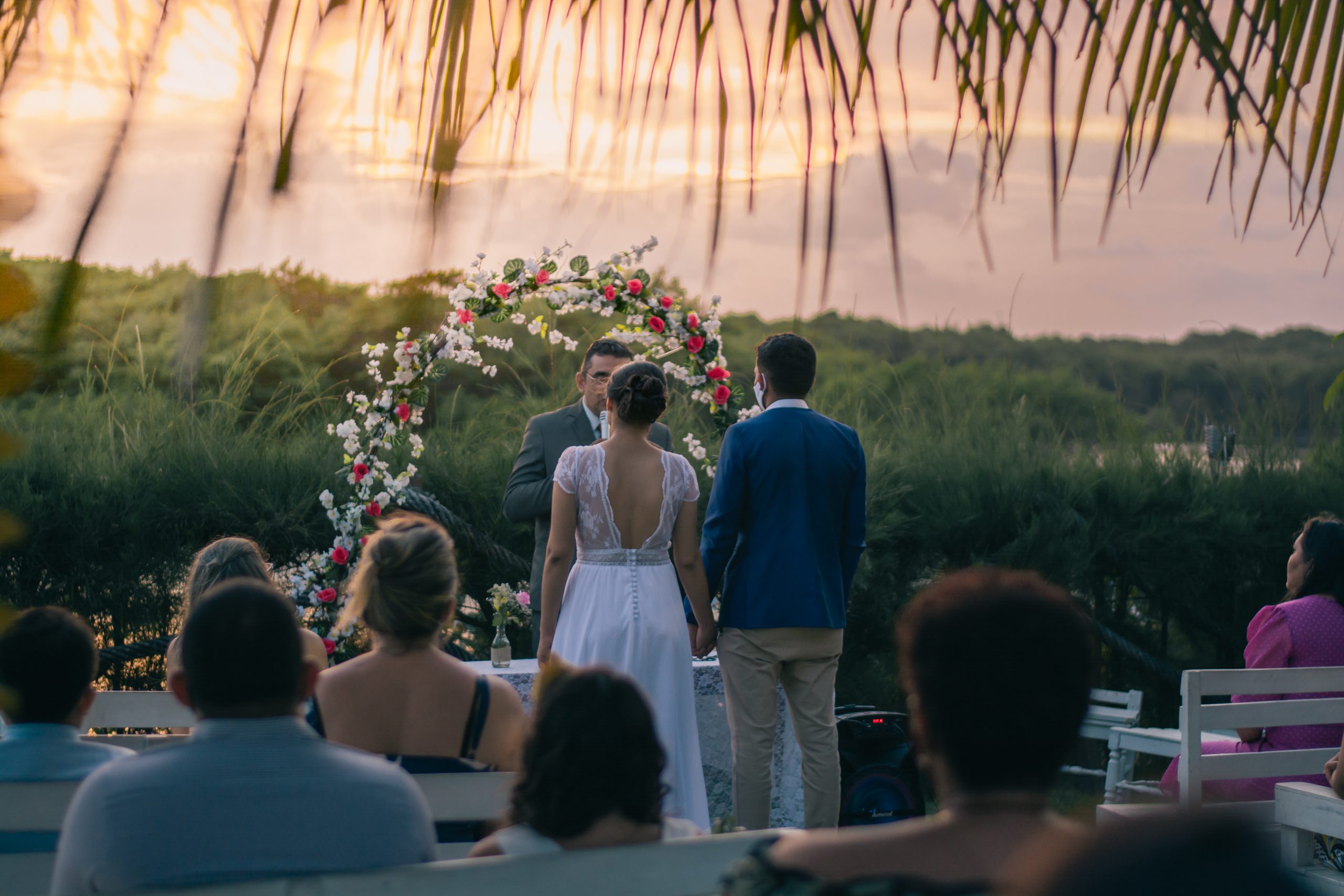One of the first major decisions you’ll have to make in the wedding planning process is where to host your event. The location ultimately sets the tone for the vibe of your wedding day, and many of the subsequent decisions about the type of vendors, decor, and other accommodations you’ll need to successfully execute a wedding will depend on where you decide to have it. Choosing the setting of the event involves more than just choosing your venue, though. It includes committing to one crucial decision about which of the two major types of weddings yours will be: an indoor wedding or an outdoor wedding. Outdoor weddings in particular are very popular as they take advantage of the beauty of the natural world, which is very important to some betrothed couples, but an outdoor wedding also comes with drawbacks and additional considerations that may not work for every event. Decide whether or not an outdoor wedding is the right choice for you by weighing the pros and cons of a few different factors outlined here.
Season
The season your wedding will take place in obviously plays a large role in the consideration to hold an outdoor wedding. Deciding on the time of year you’ll be married helps you predict possible weather conditions for your event so you can make arrangements that will mitigate the risk of anything going wrong. This will also help you decide on a backup plan and anticipate how necessary that backup plan might be.
Many couples will opt for an indoor wedding in the harsh winter months and early spring, when conditions are typically too extreme for comfort. Outdoor weddings are more common from late May to early November in the Northern Hemispheres of the globe when temperatures are more agreeable. There’s more to consider regarding comfort than just the temperature though – even a temperate spring or summer wedding may not sound like the best option for you if you’re especially sensitive to pollen (or have other plant allergies), if shade is sparse and you’re sensitive to the sun, or if your wedding will take place somewhere where insects could pose a threat to the fun.
Setting
The next important factor in deciding whether or not to host your wedding outdoors is the setting. More specifically, the limitations of your ideal venue. Not all venues are outdoor-wedding friendly. Is your desired venue appropriate for an outdoor event?
Here’s a few things to consider before committing to an outdoor wedding at your venue:
- Will guests be mingling on soft grass or a sandy beach (both difficult for guests wearing heels), or on a more stable patio?
- Have you seen the area through different conditions to ensure that it won’t get muddy or freeze?
- Is it accessible to your elderly guests and guests with mobility issues?
- Logistically, is there enough space to comfortably space all of the different tables, chairs and other key wedding features without feeling too cramped?
Certain venues do offer several advantages like stunning views, more space to include more guests if you want a larger wedding, and opportunities for outdoor-specific entertainment and activities. Beaches, mountainside resorts, botanical gardens and well-manicured ranches are all popular venue choices for outdoor weddings.
Necessary Preparations
The final things to consider before committing to an outdoor wedding are the budget and planning implications of hosting an event outdoors. In many cases, it’s wise to secure a large event tent for an outdoor wedding to protect the event from potential wind and rain or provide shade on especially hot and sunny days. There’s no way to know what the weather will be like during your event until the day itself arrives. Tents aren’t cheap either, ranging in cost from several hundred to several thousand dollars, on top of all the usual rentals like tables, chairs, and decor to fill the tent.
It’s also possible that you’ll have to rent outdoor restrooms for your event if your venue isn’t outfitted with them already. It will be a long day, and if indoor facilities aren’t close by and easily accessible, it’s necessary to rent portable toilets or a restroom trailer.
You’ll also have to think about things like electricity for lighting the event and providing power to the DJ, caterers and various other vendors. If a power source is nearby, you’ll have to get creative with extension cords, but if there isn’t a reliable way to get power, it will be necessary to rent a generator.
Other Considerations
Also consider that you can host your ceremony and reception in two different locations, like having a relatively short ceremony outdoors before hosting the reception indoors. Even if you decide against an outdoor wedding for any of the reasons listed above, you can still take advantage of natural beauty when you set out to take family photos, newlywed photos and bridal party photos. Your Surrey wedding photographer can help you select a scenic location near your wedding site. No matter what you decide, your event will be one to remember, whether you choose to host it outdoors or not!








